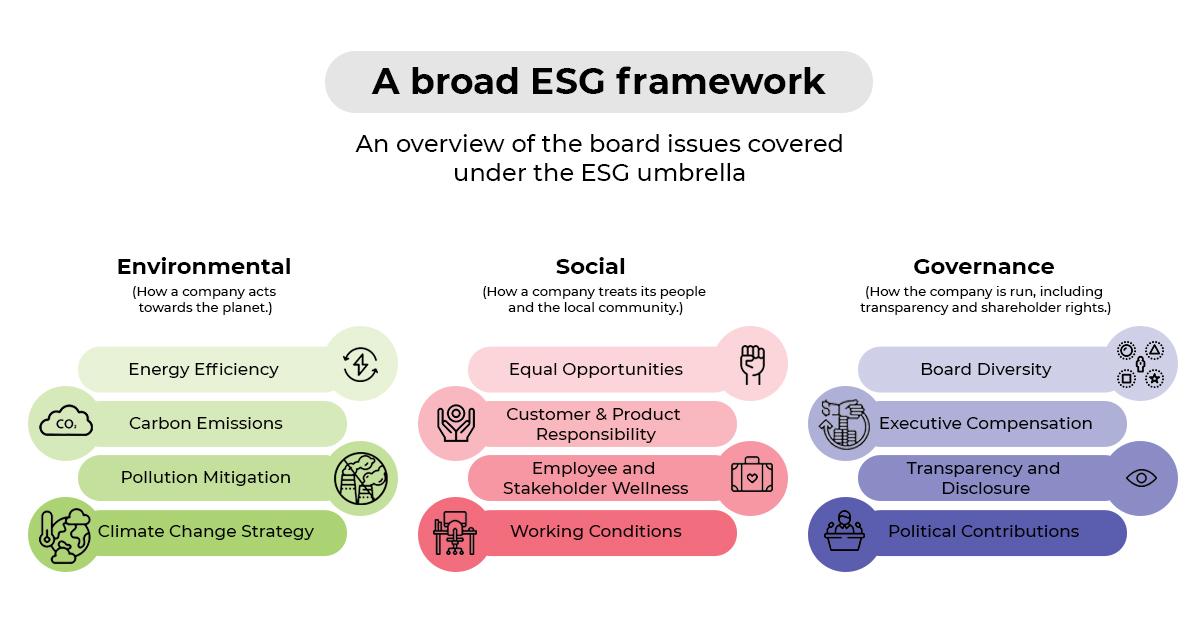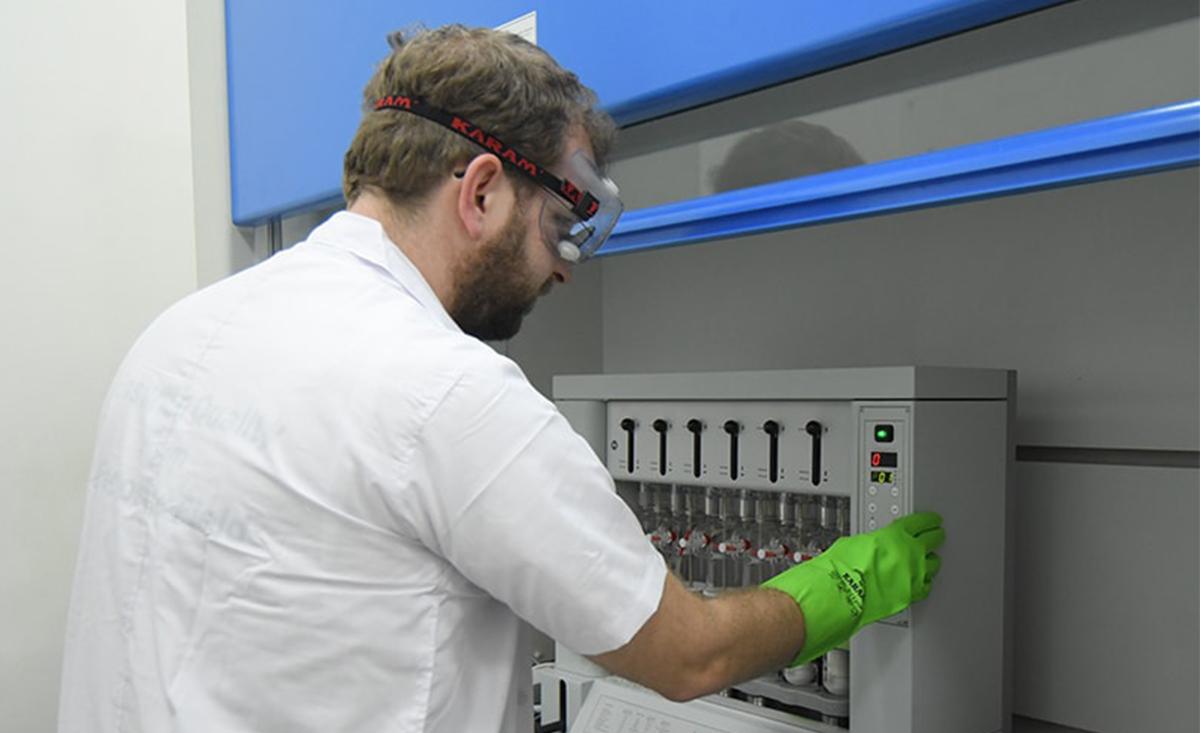ESG Investing: Investment support to Solar Power Plants in India
Mitsui Chemicals India Blog Series
2022.05.02
Mitsui Chemicals India Pvt. Ltd.
Solar Power Plants in India now have an energy capacity of over 41.09 GW, making it number five on the list of solar power deployment globally. According to the Ministry of New and Renewable Energy, with the assumption of covering 3% of wastelands by Solar PV modules- Solar Energy can potentially account for about 750 GW of power generation in India in the future.
The rise of ESG Investing has exceptionally influenced the scenario of renewable power generation in India. It has allowed the organization to contribute and cater to the ever-increasing energy demands. This article talks about what is ESG Investing and how it can support Solar Power Plants in India.
What is ESG Investing?
ESG (which stands for Environment, Social, and Governance) factors combine to form a measure that assesses an organization's collective conscience through metrics such as sustainability, inclusivity, and societal impact.
Examples of these metrics can be:
1. Using PV Modules as a means of power generation
2. An efficient framework for waste management.
3. Percent of gender and ethnic group representation.
4. Employee wellness initiatives.
5. Stakeholder wellness and safety initiatives.

According to an article by the Guardian, any organization with sustainable policies has an intangible asset, hinting towards a more promising future- as opposed to the ones without them.
ESG standards have become a crucial part of gauging a company's potential to make informed investment decisions. This increase in investor awareness regarding ESG factors has led to the rise of 76% in sustainability funds for FY21.
Managing ESG factors efficiently is a way to minimize organizational risks, while also garnering long-term capital from investors, who are increasingly considering these functions while making financial decisions.
Nowadays, many organizations in India release ESG or Sustainability reports every year. These reports address the steps taken to reduce the carbon footprint, control pollution, and corruption, promote inclusivity and equality, etc.
Solar Power Plants in India: Harnessing the sun's potential
The potential of generating power from renewable resources in India is massive, especially from Solar PV Modules. India's natural geographic condition offers a renewable energy potential of 900 GW, available for use commercially. Out of all the other renewable resources of power generation in India, the most promising resource is solar energy, with prospects of generating 750 GW of energy.
The capacity of solar power generation in India has increased exponentially over the past five years. Today, there are more than 40 Solar Parks and Solar Power Plants in India.
Supported by government and sustainability policies, these Solar Power Plants/Solar Parks are equipped to generate a larger part of an energy- and have become the focal point for power generation in India.
In addition to traditional Solar Power Plants in India- Technological advancements, almost diminishing costs for various PV modules, and accessibility to various solar components have made it easier for everyone to access solar power. With the inception of concepts like Floating Solar Power Plants (FSVPs) and Building-Integrated Photovoltaics (BIVP), Solar PV is going through a major transformation.
How can Solar Power Plants in India harness the power of ESG Investing?
Sustainable power generation in India today is not just the government's concern but is also related to corporations and individuals who are equally responsible and accountable.
ESG enables organizations to focus on their financial goals while also paying attention to concepts like using PV modules for sustainable power generation. Consciously investing in ESG-enabled organizations can be a boon for the shareholders and the society altogether.
With the pandemic, we faced a halt in the development rate of Solar Power Plants in India. But with conditions going back to how they are worldwide- our country is back on its feet and is going forward at a better pace than before. All thanks to ESG investing in various fields.
Why you should invest in organizations that have ESG policies:
As we know very well, India is a developing country. And like every developing country, it needs to focus on smart and sustainable investing. Solar Power Plants in India are a great area to put trust in, as it provides clean, renewable energy and has practically no maintenance cost after it is installed.
Situated near the equator, India has a great chance at utilizing loads of the sun's potential, and hence investing in the same is a good choice. Investing in Solar power Plants can help the companies to be more self-reliant and if they can produce more power than needed, it can be used for the greater good and society.
One should consider investing in organizations that practice ESG policies because:
1. It will ultimately cause the organization to tend to shareholders' interests. Hence, paving the way for societal development and better use of scarce resources.
2. Because people are taken care of, an increase of 88% has been seen in the operational performance of an organization following ESG norms.
3. It can do wonders for the environment and the people who live in it. ESG funds have the main motive to make the world a better place to live.
4. They offer almost 80% better stock performance, therefore lessening the investment risk.
If the organization can harness its ESG funds to strengthen its Solar PV Modules' energy capacity, making the right investment in the right direction can significantly boost the development. Investing in solar power plants can help businesses become more self-sufficient. Any surplus power generation can subsequently be used for the greater good of society.
Mitsui Chemicals India offers reliable Solar PV Technical Advisory to assist businesses in achieving autonomy in power generation and contribute towards ecological renewable energy practices and ecological renewable energy practices.

Mitsui Chemicals is an ESG-enabled organization, offering a spectrum of services and expertise in the domain of solar power generation in India. This expertise has enabled us to become the first Japanese company to set up a BIS (Bureau of Indian Standards) testing and certification lab. The BIS Lab is now used for examining the quality and reliability of various types of Solar PV modules.
From 0 to 1: Sustainability at Mitsui Chemicals India
To inculcate sustainability in our organization, we have created two matrices for our product and service to measure environmental impact and improvement in quality of life (QOL). These metrics are called the Blue ValueTM and Rose ValueTM. The Blue Value TM Index is used to assess environmental impacts, and the Rose Value TM Index is used to evaluate improvements in quality of life.
Any Mitsui Chemical product or service that exhibits a distinct contribution to the environment of QOL is certified as Blue ValueTM or Rose ValueTM, respectively.
As an organization that practices ESG principles to its very core, we are committed to sustainability and the overall development of society through our services. Being responsible corporate citizens, we have envisioned various acts of service through our VISION 2025, which aims to help the environment and society by resolving societal challenges and creating customer value through our corporate endeavors.
To know more about how you can contribute to our mission of sustainable power generation, and be a part of this sustainable investing phenomenon, reach out to us at Mitsui Chemicals India.
